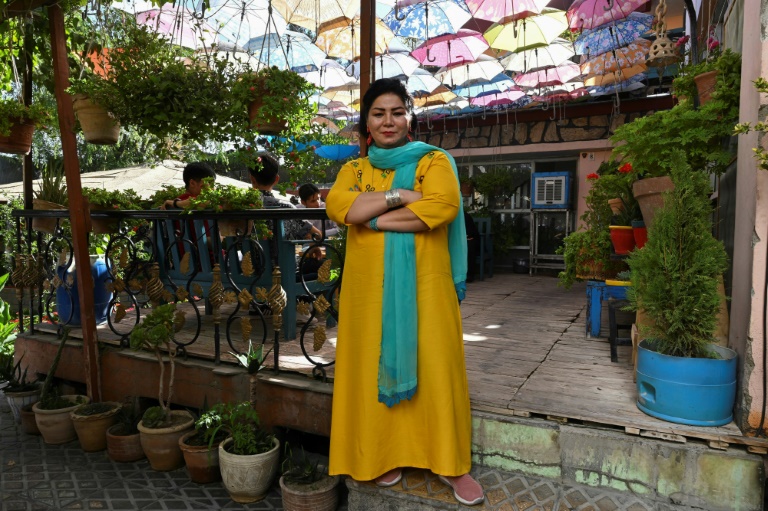Her friends and family tell her to pack up and flee Afghanistan without waiting for the possible return of the Taliban, but sitting on a terrace, smoking a cigarette, Laila Haidari is determined to stay.
The founder of a rehabilitation centre for drug addicts, she says many of her social activist friends have already quit the country.
“How can I easily leave all this behind?
‘Laila Haidari, the mother of the addicts’ — this is my identity,” she told AFP.
The US has pulled out more than 90 percent of its troops from the country, at a time when peace talks between the Taliban and the Afghan government have stalled and the insurgents are waging a blistering offensive.
There are growing fears that Afghan security forces will be unable to hold back the militants without the help of international troops.
“For the Taliban, drug addicts are criminals who are tried and sent to prison, they do not see them as sick,” she said.
Poppy cultivation was banned under Taliban rule, but since being kicked out of power by a US-led invasion in 2001, the export of heroin has provided militants with billions of dollars, fuelling their insurgency.
With poppies cheap and easy to grow, Afghanistan now provides 90 percent of the world’s production of heroin.
Crystal methamphetamine production has also surged, created from the ephedra plant which grows wild in the country.
According to anti-narcotics experts, 11 percent of Afghanistan’s 34 million population are drug users, with four to six percent addicted to hard stimulants.
– ‘The Mother Centre’ –
Raised in Iran where her family had taken refuge, Haidari was married at 12 to a mullah, who as a man had instant custody rights over their three children when she divorced him a decade later.
On her return to Afghanistan, she discovered her brother, Hakim, had become addicted to heroin and was living with other homeless users under a squalid Kabul bridge, next to a filthy stream.
Like “something out of a Hollywood movie”, she began rescuing the “living dead” and attempting to wean them off drugs using the Narcotics Anonymous programme, at a live-in centre that she launched.
“When I started, it was estimated that there were around 5,000 (addicts) in the country.
The youngest were 15 to 18 years old,” she said.
“Today the number is only increasing. And above all, 10 to 12 year-old children are falling victim,” she said.
Affectionately named “the Mother Centre” by her first guests, she has helped hundreds kick their habits and connected them with support groups for ongoing help.
Sayed Hossein was one of those pulled from under the bridge and given a fresh start by Haidari.
“I started using drugs when I was in Iran, I arrived here at 20 without a family,” said Hossein, who called Haidari “my mother”.
The 33-year-old now works at a restaurant — temporarily shut because of the pandemic — Haidari established to offer employment to recovered addicts.
– ‘Can the Taliban accept me?’
In a yellow dress and with turquoise painted nails, Haidari watches over the Taj Begum restaurant — increasingly popular with young Hazaras, a minority persecuted under the Taliban and now facing a fresh wave of violence in Kabul.
As a woman who enjoys speeding through the city’s streets in her car, singing along to the radio with her friends, she knows there is much that puts her at risk.
A string of high profile women, including activists, judges and journalists have been assassinated in recent months — attacks the US and Afghan government have blamed on the Taliban.
“Can the Taliban accept me, with an uncovered head, smoking and chatting with a man?”
“I received a lot of threats in the past… now the only threat is the Taliban,” she said.
As violence surges across the country, Haidari — who has already overcome so many challenges in her lifetime — is doubtful peace will ever return to her country.
“The Taliban killed people 20 years ago.
Today they are attacking the districts. When they get here, we will have to fight,” she said.











